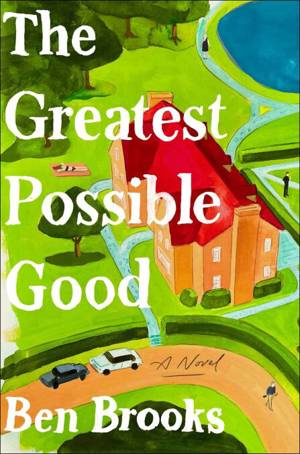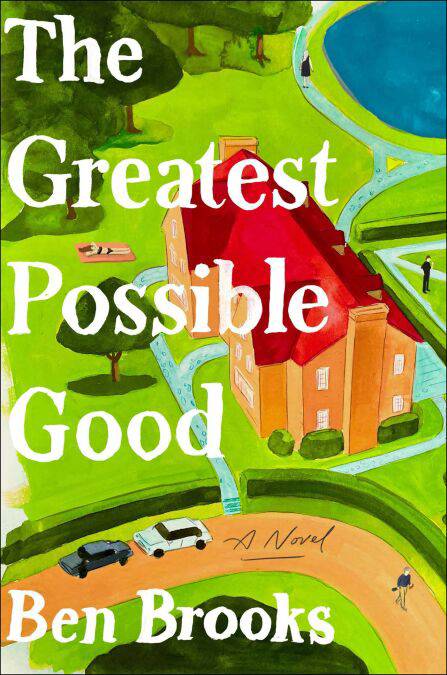
- Retrait gratuit dans votre magasin Club
- 7.000.000 titres dans notre catalogue
- Payer en toute sécurité
- Toujours un magasin près de chez vous
- Retrait gratuit dans votre magasin Club
- 7.000.000 titres dans notre catalogue
- Payer en toute sécurité
- Toujours un magasin près de chez vous
Description
For readers of Paul Murray’s The Bee Sting and Jenny Jackson’s Pineapple Street, an irresistibly funny and incisive novel about a wealthy family who are confident in their moral goodness—until the discovery that their patriarch has secretly given all their money to charity ruins their lives.
Meet the Candlewicks.
Seventeen-year-old Evangeline (a.k.a Dubbin), wants to change the world, has a penchant for throwing fake blood during protests, and despairs at the smug complacency of the rest of her family.
Emil is fifteen, and a painfully shy math prodigy who has just begun dabbling in narcotics.
Their mother, Yara, arrives at airports four hours early and fears that AI and climate change will leave her children unemployed and unable to go outside for longer than ten minutes.
And, Arthur, the father, a hapless and always neutral man, who can’t decide if he is a good person or a doormat—forgiving and understanding or weak and terrified.
Their comfortable lives are thrown into disarray when Arthur walks out into the woods one night for a stroll in his calfskin slippers only to fall down an abandoned mineshaft. Disoriented and unable to move, he remains there for three days with only a bottle of mid-range Bordeaux, his son’s confiscated stash of LSD, and his daughter’s book on the concept of Effective Altruism for company.
When he is rescued, he is a man transformed. Determined to give away all of his wealth and devote the rest of his life to the (statistically proven) most worthy causes, his metamorphosis shocks his family and triggers a chain of events that will have far-reaching and unforeseen consequences for them all.
Equal parts hilarious and achingly human, The Greatest Possible Good spans ten years in the lives of the Candlewicks, asking universal questions about what it means to live a good life and if there is a “right” way to be a good person, while introducing the world to one of the most memorable and dysfunctional families in contemporary literature.
Meet the Candlewicks.
Seventeen-year-old Evangeline (a.k.a Dubbin), wants to change the world, has a penchant for throwing fake blood during protests, and despairs at the smug complacency of the rest of her family.
Emil is fifteen, and a painfully shy math prodigy who has just begun dabbling in narcotics.
Their mother, Yara, arrives at airports four hours early and fears that AI and climate change will leave her children unemployed and unable to go outside for longer than ten minutes.
And, Arthur, the father, a hapless and always neutral man, who can’t decide if he is a good person or a doormat—forgiving and understanding or weak and terrified.
Their comfortable lives are thrown into disarray when Arthur walks out into the woods one night for a stroll in his calfskin slippers only to fall down an abandoned mineshaft. Disoriented and unable to move, he remains there for three days with only a bottle of mid-range Bordeaux, his son’s confiscated stash of LSD, and his daughter’s book on the concept of Effective Altruism for company.
When he is rescued, he is a man transformed. Determined to give away all of his wealth and devote the rest of his life to the (statistically proven) most worthy causes, his metamorphosis shocks his family and triggers a chain of events that will have far-reaching and unforeseen consequences for them all.
Equal parts hilarious and achingly human, The Greatest Possible Good spans ten years in the lives of the Candlewicks, asking universal questions about what it means to live a good life and if there is a “right” way to be a good person, while introducing the world to one of the most memorable and dysfunctional families in contemporary literature.
Spécifications
Parties prenantes
- Auteur(s) :
- Editeur:
Contenu
- Nombre de pages :
- 352
- Langue:
- Anglais
Caractéristiques
- EAN:
- 9781668089446
- Date de parution :
- 14-07-25
- Format:
- Ebook
- Protection digitale:
- Adobe DRM
- Format numérique:
- ePub







